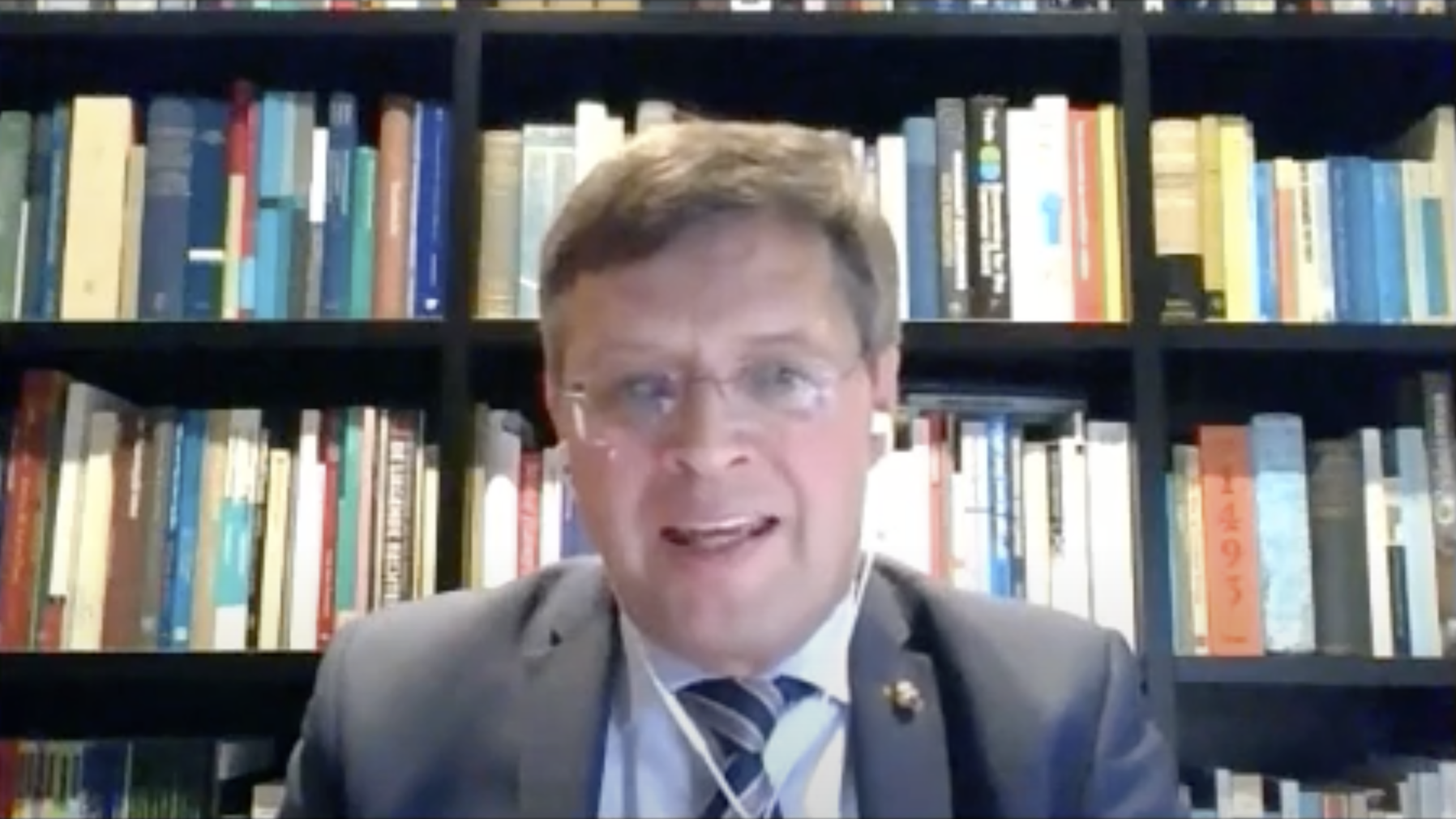Intimate Relations between Habsburg Rule, Ideology and the desire for self-government.
Online keynote speeches with Prof. em. Dr. Richard Cándida-Smith and Prof. Dr. Jan Peter Balkenende on January 14, 2021
Prof. em. Dr. Richard Cándida-Smith, University of California, Berkeley and Prof. Dr. Jan Peter Balkenende, Erasmus University, Rotterdam and former Prime Minister of the Netherlands, brought up a relevant and thought-provoking presentation of ideas on Human Rights, Warfare, Big Data, Freedom, America, Maximilian, Europe and Accountability.
Our Procurator, Baron Vinzenz von Stimpfl-Abele, focussed in his introductory remarks on one crucial aspect of the topic, namley responsibility, as it is one of the main pilars of a functioning politicial or social system. The sticking point in this context is, that responsibility – by the way, in the same manner as our conscience – is depending on the underlying value foundation. For Europe this is from the perspective of our Order the Christian Western Culture, which coined the House of Habsburg and vice versa also was coined by the House of Habsburg .He concluded that there are links between the theme of the evening and the general topic our Grandmaster gave us for 2021: European Identity.
Keeping in mind the overarching notion of how all reflects upon the identity of Europe, Prof. Dr. Jan Peter Balkenende gave us a unique chance to participate in his thinking about the relevant topics for social and economic growth. How the intertwining of business and sustainability, the aim for a responsible society and Christianity can come together in justice and freedom, though not without accountability.
Professor Cándida Smith examined the mid-nineteenth-century incorporation of warfare and military practice into the rule of law, discussing how the U.S. Civil War (1861-1865) and the War of the Second French Intervention in Mexico (1862-1867) inspired the Geneva Conventions and the subsequent founding of the International Court of Justice at the Hague. At the heart of both tragic conflicts, we discovered a contest between opposing conceptions of freedom, responsibility, and accountability. Through his specialized knowledge of the Americas he illuminated the Habsburg legacy in Mexico as a key factor in a trans-Atlantic movement to reimagine international relations.
Our brother Joost de Jonge from The Netherlands conceived this lecture in honor of our Grandmaster’s birthday and kindly presented to us Richard Cándida Smith’s contribution stemming from and as part of his artistic exchange project: “Painted Poetry & Painterly Poetics; an ekphrastic notion”.

